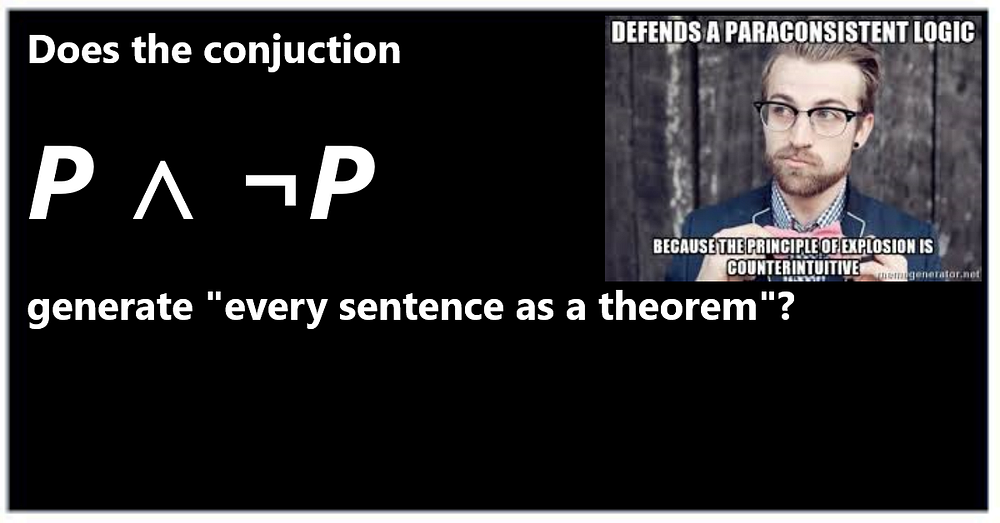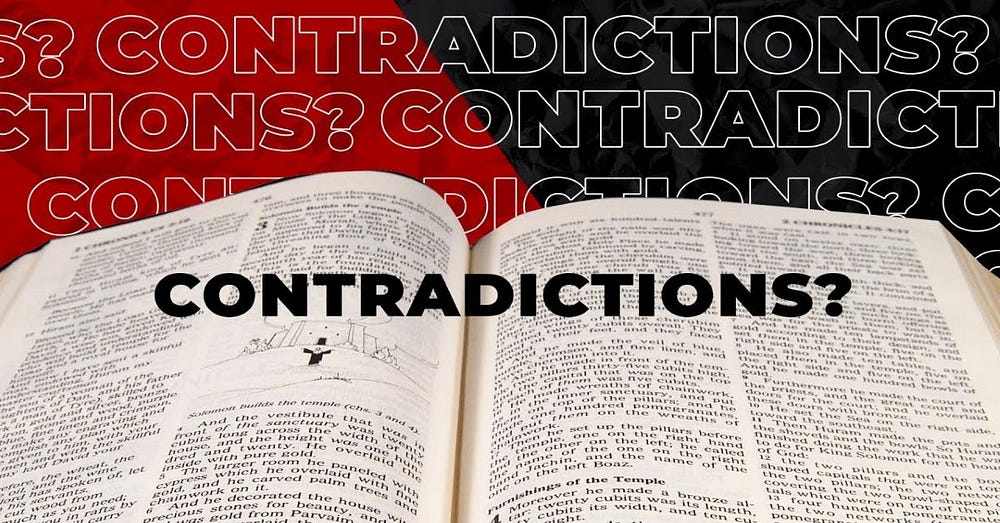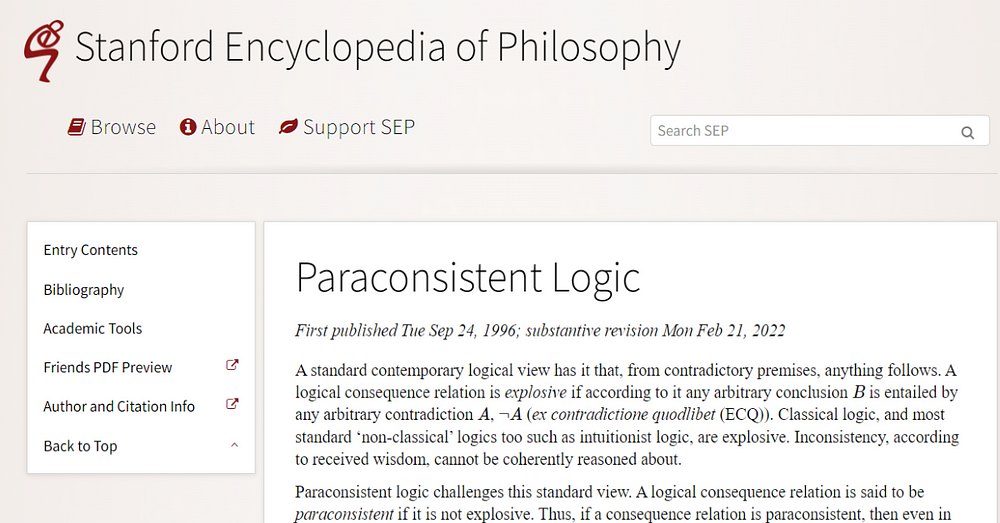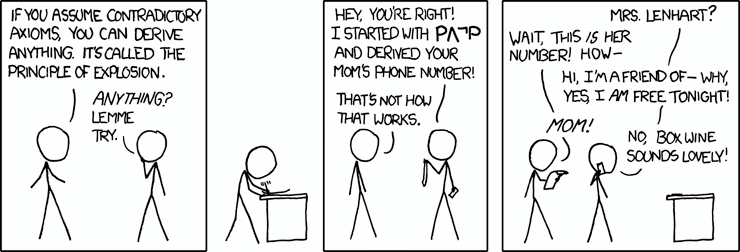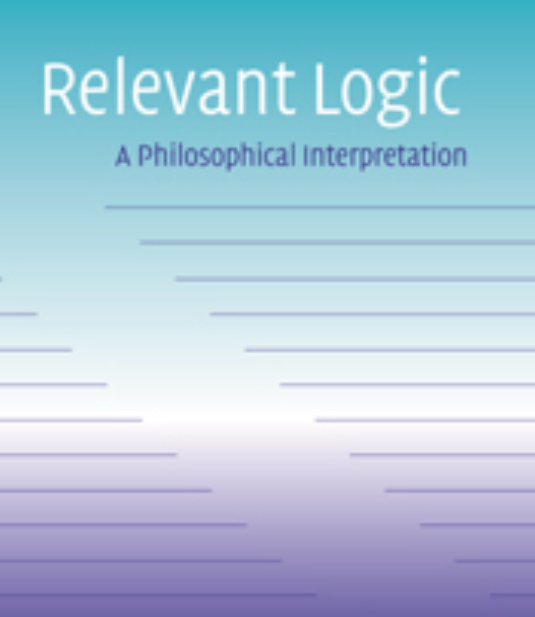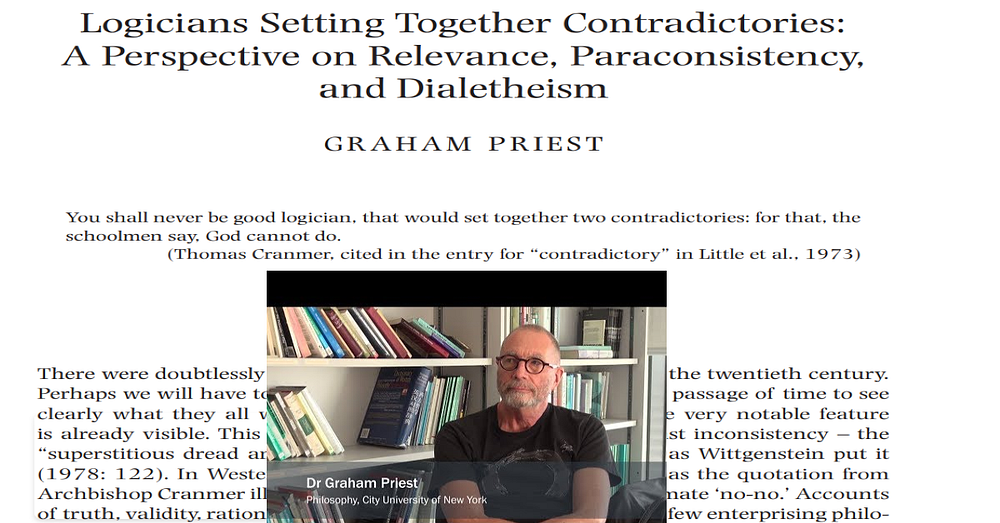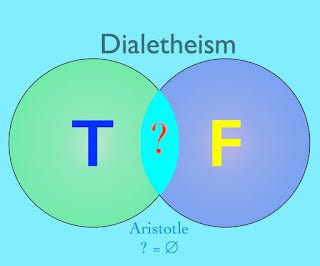This piece deals with the nature of truth-valued statements which have
semantic contents which are said to be “evidence-transcendent”. In less technical terms, the nature of
unobservability and observability-in-principle are tackled
within an anti-realist versus realist context.
The
classic cases are covered: including the doubling in size of the
universe, Bertrand Russell's flying teapot, Michael Dummett's organisms in
Andromeda, past and future events, electrons, other minds and what it
is to be bald.
Within
these contexts, we'll also try to clarify what it is to understand
statements which have evidence-transcendent content.
Realist
Truth
The
realist position on truth can appear strange, at least prima
facie.
Take this statement:
“In
607 AD
there were precisely one
million
people with ginger hair in Europe.”
According
to the realist, that's either true or false. He may also say that
it's determinately true or false (i.e., it's truth is fixed in
time).
Similarly for this statement:
“Is
is true [false] that Theresa May, at this precise moment, is dreaming
about flowers.”
If
Theresa May isn't asleep, it's false. That would be easy – in
principle – to determine. Though what about if she is asleep at
this precise moment? Is it still determinedly true or false that
she's dreaming about flowers?
Despite
that, it may well be the case that although one takes a realist
position on
this,
one needn't take a similarly realist position on all other domains of
discourse. (This is often said of anti-realism, not realism.) More specifically, statements about Bertrand Russell's
flying teapot or Dummett's organisms in Andromeda (both covered
later) may well be determinately true. Nonetheless, is it
automatically the case that a realist should also have exactly the same
position, for example, on statements about the future? Perhaps a
realist believes that statements about the future throw up problems
which aren't encountered in these other domains.
Understanding
Statements
Following
on from that, an anti-realist can ask a realist two questions:
i)
If you understand the statement “It is true [or false] that that
the universe sprang into existence just five minutes ago, replete
with traces of a long complex past” [worded by Bob Hale], then how
do you understand that sentence?
ii)
What gives you the warrant to say that it's either true or that it's
false?
The
realist may now reply:
What
do you mean by the word 'understand' [as in “understand that
sentence”]?
A
standard picture is that in order to understand p,
one needs to understand both p's
truth-conditions and then somehow decide whether or not those
truth-conditions obtain. So, in the case of the statement about the
universe doubling in size, how would the truth-conditions for the
universe being the same size differ from the truth-conditions of a
universe which has doubled in size? (I'm assuming here that the
philosophical puzzle of a doubled universe works. As it is, there are
arguments against it.) Secondly, how would someone be warranted (or
justified) in saying that the universe has or hasn't doubled in size?
The
argument is that if the realist can't answer these questions, then
his position is untenable. That is, he doesn't know what he's talking
about. Or, less judgementally, he doesn't understand
what he's talking about. That means that we have no means of
understanding what a realist position on truth (at least as regards
the doubled-universe scenario) amounts to.
The
Doubled Universe
Since
we've just mentioned the doubled-universe scenario, Bob Hale talks in
terms of what he calls “chronically e-transcendent statements”
[1999]. (The 'e' is short for 'evidence'.) He cites the doubled-universe case:
“Everything
in the universe has doubled in size.”
As
well as:
“The
entire universe sprang into existence just five minutes ago, replete
with traces of a long and complex past.”
(These
statements have been much discussed in philosophy; though
not always in the context of the realism vs. anti-realism debate.)
If the universe had doubled in size (so the argument goes), then
there'd be no way of telling that it had actually done so. Thus we
couldn't say that it has or that it hasn't doubled in size.
Nonetheless, isn't it the case that it either has or it hasn't doubled in size? And if
that's the case according to the realist, the statement is indeed
determinately true or determinately false.
Unobservable
Electrons
There
are many problems for the anti-realist position too;
especially if anti-realism is closely tied to acts of verification
(or to verificationism).
Take
the many unobservable phenomena of science (specifically of physics).
Can it be said that statements about, say, electrons are similar in
kind to statements about our doubled universe or flying teapots in
distant galaxies? Certain anti-realists would say that even though
electrons aren't observable, we're nonetheless led to posit their
existence because of the evidence supplied by phenomena which are
indeed observable. Thus, although electrons are too small to be
observed, we're led to them by observable phenomena - plus, of course,
lots of theory. (Couldn't the realist argue that he's led to his
statements about determinate truth about the
unobservable-in-principle by what is actually observable?)
The
idea that an electron is posited due to phenomena we can observe
(along with theory) is parallel - or additional - to the idea of
something's being observable-in-principle.
It
could be said that something as tiny as the electron could be
observable in principle; except for the large problem that it's
deemed to be a “theoretical
entity” anyway. That is, besides mathematical structure (as
well as theory), there would be nothing to observe even if we could
observe it. On the other hand, we can say that a distant something in our solar
system could be observed in principle. That may mean that this
something isn't a theoretical entity at all. Well, in a sense, it is
a kind of theoretical entity in that it hasn't actually been
observed. Though being, say, a teapot, it could be observed if we
were able to travel to the distant place it inhabits. (Let's forget
the science here!)
There's
one clear problem for this observable/unobservable opposition.
This is that there isn't always (or never) a clear dividing line between
observation-statements and theoretical statements. That can be
because observation-statements involve theory and theoretical
statements involve (elements derivable from) observation.
Still, whatever problems there are here, they're not as problematic
as those statements about unprovable
mathematical statements; and certainly not as problematic as our
doubled-universe scenario.
Other
Minds
A
similar problem arises for anti-realism when it comes to other
minds. We can't observe the goings-on in other people's minds.
Nonetheless, like electrons, we're
led to acknowledge other minds because of the things we can
indeed observe. However, in this case we still need to accept that
behaviour (including speech and writing) isn't conclusive evidence
for other minds.
There
are many problems thrown up by other minds. Behaviourism, for one,
was/is one response to these philosophical problems. And that's why
certain types of behaviourist relied exclusively on behaviour
(whether physical or verbal behaviour) in their experiments and
musings. That meant that other minds ceased being a problem for
behaviourists because minds in effect didn't (really) exist. Or, at the least, behaviourists believed - at one time - that the mind wasn't a fit subject for
science.
Is
John Bald?
There's
also the problem of statements which involve vague
concepts
or references to vague
states-of-affairs (if there can be such a thing!). Take
the well-known case of whether a certain person is bald.
To
clarify with a statement: “John is bald.” This can certainly be
said to have truth-conditions (which certain earlier examples didn't
have). Nonetheless, in a certain sense, truth-conditions don't really
help here. That is, we have access to John and to John's head. What we
don't have access to is whether or not it's true or false that he's
bald. (I'm taking it here that someone can be bald even if they have
a few hairs left.) Since it's already been said that truth-conditions
aren't the problem, then perhaps we do have a problem with the “vague
predicate”
that is “bald”.
Here
we encounter problems covered by a sorties paradox. Can we ignore
them for now? Perhaps we can. It can be said, for example, that we
can make a stipulation as to what makes someone bald. (This is deemed
to be problematic if taken as a sorties paradox.) We can say that
anything less than 100
hairs
constitutes baldness in a given male. Consequently it can be said that it's
determinately true that John is bald or not bald (i.e.,
post-stipulation).
What if we accept the sorties paradox? Then we'd be unable to decide
(care of truth-conditions or anything else) whether or not John is
bald. Nonetheless, the realist, yet again, would argue that it's a
determinate fact which makes it the case that either John is bald or
John isn't bald. The problem is that if we accept the paradox,
we can't know either way.
Michael
Dummett,
for one, had a problem with this realist conclusion.
In
terms of the word “bald”, that would mean that our use of words
like that would have “confer[red]
on them meanings which determine precise applications for them that
we ourselves do not know”. Basically, that would mean that the
world
tells
us if John is bald or not. Or, at the least, the world (including
John's head) determines the truth or falsity of the statement “John
is bald”. In addition, the world determines the truth regardless of
whether or not we can ever determine it to be true or false. Yet
surely whether or not someone is bald is something to do with what we
decide. The world has no opinion on this or on anything else.
Still,
this sorties
paradox
has an impact on the nature/reality of baldness even if we accept a
conventional stipulation about baldness. That is, the logical process
which leads from having, say, 1000 hairs to having a single hair is
still ultimately paradoxical. That is, step by step we can move from
the statement “A man has a thousand hairs is not bald” to the
statement “A man with three hairs is not bald” without a hiccup.
Another
way of looking at this is to say that if the realist is correct, then
any indeterminacy there is has to do with our vague predicates or
vague statements, not the world itself (or with John's baldness).
The
Teapots/Organisms of Andromeda
Michael
Dummett offers us this statement:
“'There
are living organisms on some planet in the Andromeda galaxy.'”
That
statement, according to Dummett's realist, is “determinately true
or false” [1982].
In
response, the anti-realist adds an extra dimension to this case in
terms of the aforementioned idea of observability-in-principle.
Dummett expresses the anti-realist's (as well as, I suppose, the
realist's) position in this way:
“'If
we were to travel to the Andromeda galaxy and inspect all the planets
in it, we should observe at least one on which there were living
organisms.'”
Basically,
because the science and the practicalities are so far-fetched in this
case, we can't do anything else but forget them. In other words, we
need to give the anti-realist the scientific benefit of the doubt.
The problem here, though, is that if we give the anti-realist the
benefit of the doubt about this currently unobservable situation
(which is nonetheless supposedly observable-in-principle),
then we can - or must – do the same in the countless other cases of
unobservable phenomena in science (particularly in physics). Having
said all that, these provisos may not be to the point here.
In
any case, if the aforementioned organisms are
observable-in-principle, then perhaps they can't be (fully)
theoretical entities. Or, less strongly, if the Andromeda organisms
are theoretical entities at the present moment, then they
needn't remain theoretical entities simply because they can be
observed in principle. (Though, again, perhaps the atomic and
subatomic world may one day be observed; though not if the entities
concerned are simply “theoretical
posits” and/or mathematical structures.)
Statements
About the Future
Dummett
also brings up another example of something that's
unobservable-in-principle: a future event. How can we deal with
truth-valued statements about future events?
My
prima facie position is twofold.
i) Such statements are
neither true nor false. ii) If such statements are neither true nor
false, then they serve little purpose.
The
realist believes that statements about future events are
determinately true or false. According to Dummett, the realist
believes that
“there is [ ] a definite future course of events
which renders every statement in the future tense determinedly either
true or false” [1982].
I
find realism towards statements about the future even more difficult
to accept than realist claims about other domains. I would agree with
Dummett when he says that the only way that a future-tensed statement
can be true or false at this moment in time would “only [be] in
virtue of something that lies in the present”. This is surely
Dummett hinting at some form of determinism in that what is the case
at this moment in time will have a determinate causal affect on what will be
the case in the future. (Try to forget arguments against determinism here;
as well as references to quantum mechanics, backwards causation,
action-at-a-distance, etc.)
Let's
take that deterministic position to be the case. That is, a
future-tensed statement is true or false at the present moment in
time because of what is the case at
the present moment in time. That's the case
even though the event referred to is in the future. That's fair
enough; though it's clear that the realist would have no way of
knowing whether or not it's true or false at the present moment.
Nonetheless, we've already seen that the realist happily and
willingly accepts his position of epistemic deficiency.
Instead
of using the word “determinism”, Dummett talks about “physical
necessity” instead.
Dummett
picks up on an interesting consequence of what was said in the
previous paragraph. What the realist must do, Dummett argues, is tell
us what are the truths about the statement (or situation) at the
present moment in time and how these truths bring about the truth of a
statement about a future event. That means that only known truths at
the present moment can contribute to truths about future events –
at least within this context of “physical necessity” or
determinism.
Dummett
spots a double problem with the realist's position here. The realist
can't determine the present-time truths which would bring about
truths about the future. And, by definition, he can't determine - as
a consequence of this - a statement about the future that's true at
the present moment. That means that although the realist acknowledges
his lack of a means to determine the truth of a statement about a
future event, he hasn't even got a way of determining the
present-time truths which will determine - or cause by virtue of
physical necessity – the truth of statements about future events. Thus, in
order to make sense of his realism, the least we should expect from
the realist is the truths of statements about current situations
which would cause - or determine - the truths of statements about
future events. Without all that, realism towards statements about the
future make little sense.
References







